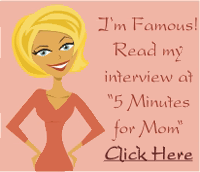It’s funny how society relates to one another. Just walking about in a city—any city—let’s choose the Northeast, I don’t know why? ;) We walk to work, jump the subway, hail a cab, whatever it takes to get us from A to B and with acceptance and some acknowledgement that we are not alone in the world and that we are fighting against the same crowd of people just like you and me, everyday…and without a mention of a “Hello” or eye contact. I mean, God forbid we linger too long staring at someone—it could lead to some scary consequences. And if we did start making conversation with a complete stranger—then we’re just “weirdos” and think oooh get away from him/her. We simply tolerate our fellow man while we coexist, No? I guess that’s just the cynics approach to society, not that I'm a cynic, but if I were, that would be my answer.
Funny how our autistic kids are knocked for possessing some of these “antisocial” functions that we come to accept as normal in daily life. And are condemned if we don’t.
One day, many years ago, I was walking through the streets of Boston as a young and naïve 20 year old. I was new to the hustle and bustle and harsher mentality of the working city (I grew up in its suburbs that was as protective of their young as the grizzly bear) and was new to its less than attractive inner social workings. I had just started a new job to pay for college and I just so happened to smile at a homeless man standing on the sidewalk holding out a cup for spare change and he said something very horrible to me (I won’t repeat it…unless, of course, you want me to? Okay, it’s more fun to hear the juicy stuff: he said “Don’t smile at me you stupid lesbian bitch”)—to me, a young, nice, sweet girl whose only crime was acknowledging him as a person instead of passing him by like everyone else did. I was walking to the coffee shop where I would grab a coffee, muffin and spare change for the homeless man.
Well I didn’t offer him my change instead I told him "FU" (and it was my first experience, ever, saying that to someone--and it was upsetting--but I felt the need to defend myself).
Funny how a nice, innocent, naive girl can become a totally different person in one fell swoop, and, thus, was my “christening” into the adult “real” world.
This is not much different than the story of my daughter who is now living at a residential school. It was not like we were biding our time with her and just getting through the days and the years. She wasn’t always what we would call “residential material.” Sure, we had our struggles—me, especially—being that I was home with her and her primary caregiver. But we would and could ride out the problems like every other parent does—autism just presents more challenges and frustrations than those of a typical child. In fact, Meghan was the oldest student in her class with her severity, and appeared to be a student who wouldn’t need to attend a residential school. So things were working—not golden—but functioning, and then one day my perception changed—as it did when I was 20 and welcomed into the real world.
Maybe it was because she’s so smart and thought she could outsmart her mom. Maybe because she knew that she was bigger than me and could pick a fight and win. Maybe it was teenage hormones—certainly that played a big part. Perhaps it was all of these things combined—like the perfect storm. It’s not uncommon for this to happen, and it usually does.
But it felt the same as it did twenty years ago, in Boston, with that homeless man; it’s just so shocking that it knocks you right over. And as a cynic might say: that’s life.
Monday, September 15, 2008
Subscribe to:
Post Comments (Atom)










No comments:
Post a Comment